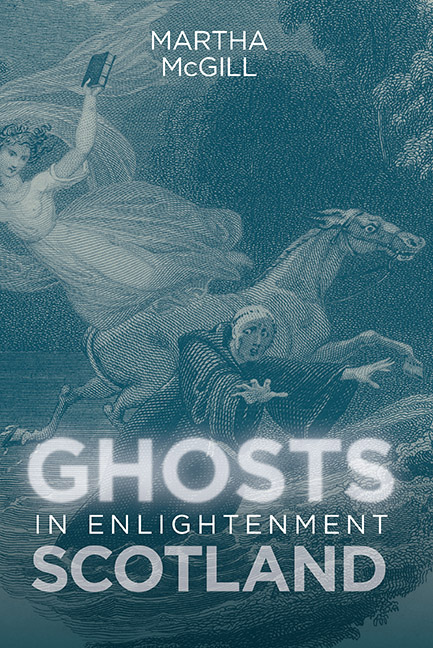Book contents
Chapter Two - Evangelising Ghosts
Published online by Cambridge University Press: 12 October 2019
Summary
In 1659, John Maitland, second Earl and later first Duke of Lauderdale (1616–82), sent a handful of supernatural stories to the English theologian Richard Baxter. These stories covered cases of demonic possession, haunted houses and attempted exorcisms. Keen to avoid accusations of credulity, Lauderdale devoted some of his space to mocking Catholic fraudulence. He described travelling to see a group of demonically possessed nuns, only to find them ‘nothing but wanton Wenches singing baudy Songs in French’. An Antwerp exorcism sought to relieve a gaggle of burping Dutch girls; Lauderdale quipped that ‘if those were Devils, they were windy Devils’, and suggested that the women were possessed with no more than ‘a Mornings Draught of too new Beer’. However, Lauderdale also presented some ‘authentically attested’ accounts. They included two stories of poltergeists discussed in the previous chapter: the Edinburgh poltergeist who clattered around a minister's house, and the Dumfries poltergeist who assaulted English soldiers. Lauderdale told these stories with spirit and humour. However, he thought of them as more than mere curiosities. His declaration at the beginning of the letter hints at the deeper significance of the accounts: ‘It is sad that the Sadducean, or rather Atheistical denying of Spirits, or their Apparitions should so far prevail; and sadder, that the clear Testimonies of so many Ancient and Modern Authors should not convince them.’
References to Sadducism and atheism appear frequently in the supernatural literature of the late seventeenth century. According to the Bible, Sadducees believed that ‘there is no resurrection, neither angel, nor spirit’. For James VI, Sadducees were those who fell into the error of ‘denying of spirits’. The term ‘atheism’ could be employed in the modern sense, to mean denial of a deity. However, it was frequently used more broadly, to reference philosophical outlooks that devalued the importance of spiritual entities, the afterlife, divine providence and miracles. Lauderdale was reluctant to allow that his poltergeists could stem the tide of unbelief. Atheists, he wrote, ‘are not to be convinced by Stories’. Other writers were more optimistic. Although Lauderdale requested that his stories should not be published, Richard Baxter included them in The Certainty of the Worlds of Spirits (1691), a work that was written ‘for the Conviction of Sadduces and Infidels’.
- Type
- Chapter
- Information
- Ghosts in Enlightenment Scotland , pp. 49 - 84Publisher: Boydell & BrewerPrint publication year: 2018

